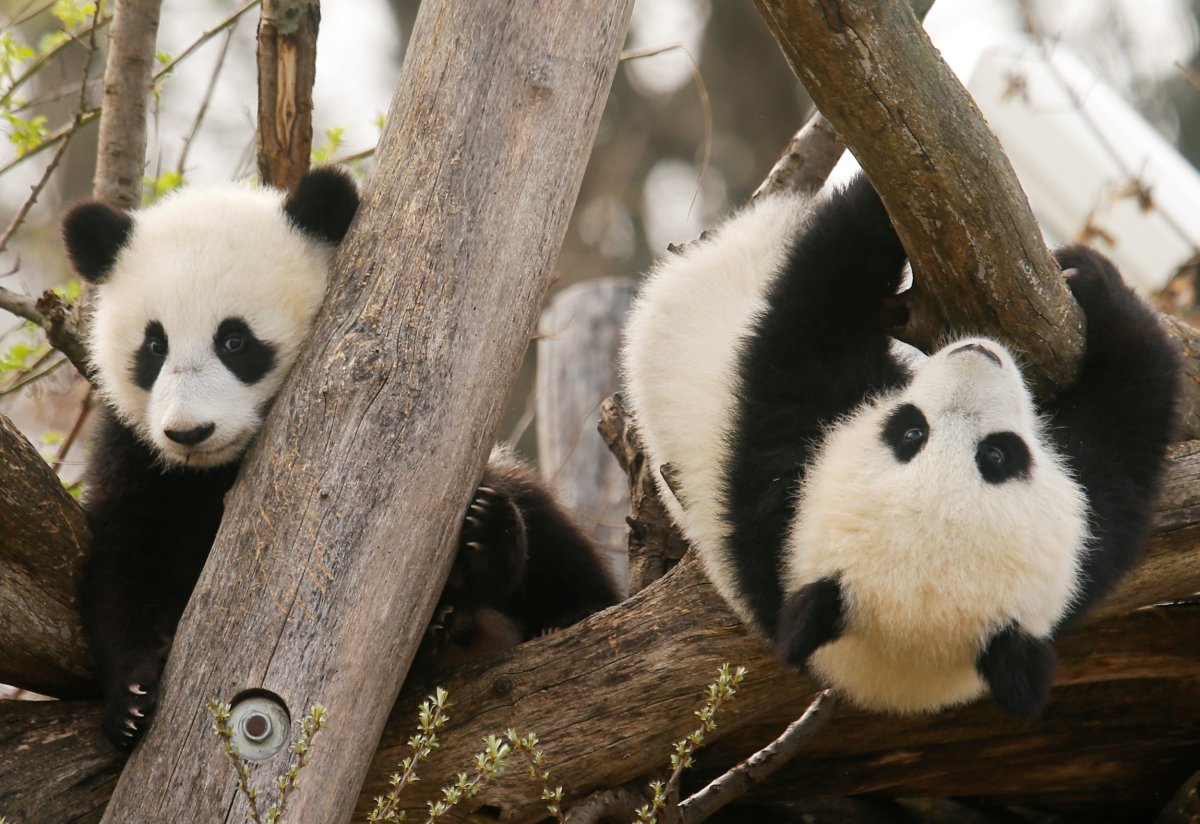Giant panda numbers are slowing on the rise thanks to China's efforts to improve the population and well-being of the species, the country's state media said this week.
Officials from the National Forestry and Grassland Administration (NFGA) told a conference Thursday China now has 1,864 giant pandas in the wild. That was up from 1,114 a decade ago. The animals's habitat has nearly doubled, now spanning 2.58 million hectares, Xinhua reported.
"The endangered status of the giant panda was further eased," said NFGA official Yang Chao, adding that up to two-thirds of the giant panda population is now being protected. By the end of last year, Yang said there were a total of 518 giant pandas being raised in captivity. Experts plan to contsruct a 27,000-square-kilometer national park for giant pandas, Xinhua said.
Seven out of nine captive giant pandas released to the wild since 2003 have survived the transition, state media said. The International Union for Conservation of Nature reclassified the status of the species from "endangered" to "vulnerable" in 2016, according to Asia Times. Giant pandas, which are native to Chinese regions, are widely considered to be poor breeders.
Conservation organization WWF states online that they are "biologically unique."
"They are closely related to bears and have the digestive system of a carnivore, but they have adapted to a vegetarian diet and depend almost exclusively on bamboo as a food source," a description of the species reads. It continues: "At birth, panda cubs weigh only about as much as a quarter-pound stick of butter (90-130 grams) and have little fur. Adults can weigh more than 220 pounds. A panda's average life span is 20-25 years in the wild and up to 30 in captivity."
In July, four tourists were blacklisted from a nature reserve in China for throwing stones at a 7-year-old panda in attempt to get it to move.
It has been estimated there are around 2,060 giant pandas in the world.
"Evidence from a series of range-wide national surveys indicate that the previous population decline has been arrested, and the population has started to increase," the International Union for Conservation of Nature (IUCN) said in a 2016 paper, as previously reported. "The improved status confirms that the Chinese government's efforts to conserve this species are effective."

Uncommon Knowledge
Newsweek is committed to challenging conventional wisdom and finding connections in the search for common ground.
Newsweek is committed to challenging conventional wisdom and finding connections in the search for common ground.
About the writer
Jason Murdock is a staff reporter for Newsweek.
Based in London, Murdock previously covered cybersecurity for the International Business Times UK ... Read more
To read how Newsweek uses AI as a newsroom tool, Click here.








